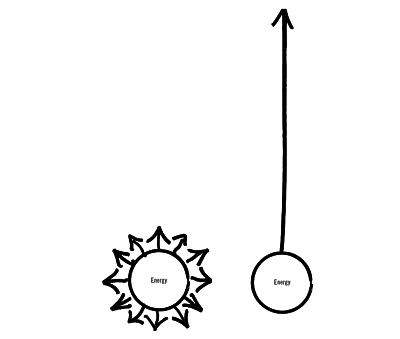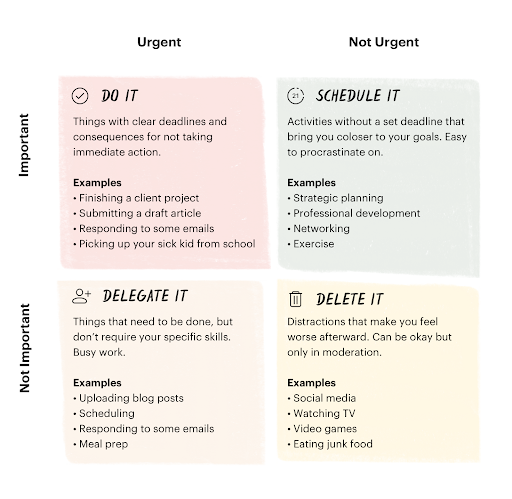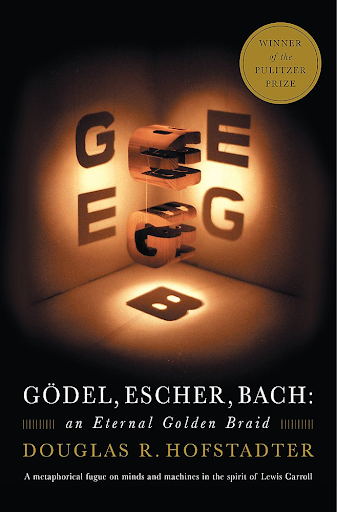“Whatever can happen at any time can happen today.”
~ Seneca
Greetings from LA and Hawaii.
This week we interviewed the founder of a software company, revisited the Eisenhower Matrix, learned about the naturalistic fallacy, considered the 21st century’s economic manipulation of addiction, and read “Gödel, Escher, Bach”. Our challenge is for you to consider the second quadrant of the Eisenhower Matrix — are you scheduling time for the things that matter most?
Focus = Growth

This week we spoke with Keith Perhac, the founder of SegMetrics, a SaaS company that helps marketers and business owners define the true value of lead-gen sources.
Over the last 12 months, Keith and his team have grown SegMetrics by 800% in revenue, past a million dollars. In large part, Keith believes this has been a function of him dissolving an agency that had taken up the bulk of his time for years, making SegMetrics nothing more than a “side hustle”.
Amused, he said, “I was just trying to hedge my bets too much is what it really comes down to. And it’s amazing. When you focus, you grow. Who woulda thought, right?”
(This reminds us of a certain graphic popularized by Greg McKeown, the author of Essentialism — see below)

More practically, tripling their prices — something that many companies are afraid to do — had a huge impact on their revenue.
But they didn’t just raise their prices…
“We did something really important, which was not just raise our prices, but change the way we were pricing.
We used to have buckets. You’re on the starter plan but if you go over your limit, then you jump to the pro plan. And if you go over that limit, then you jump to the enterprise plan. What we found was that people really didn’t want to go over their limit so they would avoid it as much as possible.
So we changed our pricing to this boiling-the-frog strategy. Now you pay a base rate for the features you want. And then it’s just $10 for every 10,000 contacts. And people are way more willing to pay $10 than they are to jump to a higher-priced plan… even though it actually costs them a bit more money.”
In other words, it’s not necessarily about how much you charge… but about how your clients or customers perceive the price.
Finally, we asked Keith what he wished he would have known before he started on his entrepreneurial journey. Here’s what he told us:
“Build it and they will come is probably the biggest lie. You have to get out there. Do not build something thinking that it’s what everyone wants and then launch it to no fanfare. You can’t spend like 6 months writing a course and then see if people are interested, you have to start small, even if that’s just an opt-in form on a site to see if people are interested. You’ve got to determine demand. Because the things that you think all your customers are going to be interested in and the features they want are not necessarily what they’re going to be looking for.”
If you want to hear more from Keith, you can follow him on Twitter.
Eisenhower Matrix

The above graphic (taken from ToDoist) is called the Eisenhower Matrix. It splits a person’s tasks into four different quadrants based on two factors: importance and urgency.
It’s helpful to spend a few minutes thinking about your typical day and which tasks you’re getting done and which ones you’re putting off.
You’ll find that you’re primarily putting off tasks that fall in the upper right quadrant — they’re important but they’re not urgent. These are the long-term game-changing things you can do to build yourself a better life: going to the gym, building a business, writing a book, dating your spouse, playing with your kids, etc. Those are the tasks we need to schedule time for.
The upper left quadrant, on the other hand, is full of important tasks that you’re going to get done no matter what — because they’re urgent. Do these ASAP and don’t procrastinate.
The lower left quadrant is full of tasks that you should try to delegate or automate — tedious things like meal prep, responding to emails, or scheduling.
And the lower right quadrant is your down time — video games, television, social media, etc. You can do these things, but don’t prioritize them above the others.
If you want to learn more about this matrix, then check out Stephen Covey’s book, 7 Habits of Highly Effective People.
The Naturalistic Fallacy
Most human ancestors ate meat. Therefore humans should not be vegetarian.
Those statements are an example of the naturalistic fallacy. The naturalistic fallacy is the notion that what comes from nature is good or preferable to things that don’t come from nature.
But philosopher David Hume would caution us from jumping from “is” to “ought”.
Here’s an example from an article by The Ethics Centre:
“It is true that smoking is harmful to your health. Therefore, you ought not to smoke. The claim that you ‘ought’ not to smoke is not just saying it would be unhealthy for you to smoke. It says it would be unethical. Why? Lots of ‘unhealthy’ things are perfectly ethical. The assumption that facts lead us directly to value claims is what makes the is/ought argument a fallacy.”
Here’s another example:
“Breastfeeding is the natural way to feed children. Therefore, mothers ought to breastfeed their children and ought not to use baby formula (because it is unnatural). This is a fallacy. We act against nature all the time – with vaccinations, electricity, medicine – many of which are ethical. Lots of things that are natural are good, but not all unnatural things are unethical.”
In light of all the products and services being released and popularized that market themselves as being more “natural” and thus more beneficial and/or ethical, the above fallacy is worth keeping in mind.
The Off Switch
Recently, bestselling author and business professor, Scott Galloway, published an article titled Robinhood and iAddiction (referring to the popular stock trading app, Robinhood).
In it, he discusses how Robinhood recently “agreed to pay $70 million in fines and customer reimbursements to settle a FINRA investigation.” Before that, Robinhood had paid “a $60 million fine in December to the SEC for failing to properly disclose its order-flow revenue, and a separate $1.25 million fine to FINRA.”
Galloway then speaks out against Robinhood, what he believes to be the “Sith Lord of finance — monetizing the addictive nature of day trading”:
“My concern with Robinhood — i.e., I believe these guys are mendacious fucks — is more fundamental. The company’s mission to “democratize finance for all,” is similar to Pablo Escobar saying his mission was to ‘democratize cocaine.”
He also points out,
“Robinhood traders invest overwhelmingly in highly speculative assets: Dogecoin accounted for 34% of Robinhood’s cryptocurrency transaction-based revenue in Q1 2021, and 6% of the trading firm’s overall revenue in the same period. Dogecoin shed 30% of its value when ‘dogefather’ Elon Musk took the SNL stage. Trades in the private market(s) reflect a valuation of $55 billion. That feels right. Pablo Escobar was believed to have amassed wealth of $64 billion.”
Switching gears and speaking of addiction, he writes,
“Most disease and hardship for our species has been a function of scarcity — too little salt, sugar, fat, approval, safety, opportunities to mate. As a result, when we find these things, our brain produces the ultimate reward, the pleasure hormone dopamine. And it makes sense. Nature rewards behaviors that ensure the propagation of the species…
Survival, propagation, and consumption should result in a next generation that’s smarter, faster, and stronger. Where things have come off the rails is a function of our innovation economy moving faster than our instincts. Historically, humans have engaged in activities that have natural stopping cues — the end of a chapter, the end credits. Platforms like Facebook, Instagram, and Netflix have systematically eradicated these cues. Just as casinos are deliberately laid out without hard angles: It’s all one continuous space and you keep moving through it, on to the next game.
Technological progress lapping the calibration of our instincts culminates in an endless scroll. We’re unable to find the off switch. Unlike our parents and grandparents, for us dopamine release no longer depends on sacrifice, engagement, or grit, but on sitting still, as in 15, 14, 13 seconds episode 5 of Killing Eve will begin. There are more filtered photos, more porn, more equities, more margin, more dopa — more time without the nuisance of needing to engage in … life.”
It’s troubling. But it’s the reality of the world we live in — marketers, entrepreneurs, and business people are creating products and services that are addictive; and who could blame them?
Personally, our job is to be aware of how we’re being manipulated (whether it’s Robinhood, Facebook, or Tik Tok) and then use that awareness to turn the addiction on its head — we don’t have to engage if we choose not to… if we turn it off.
Gödel, Escher, Bach

We’re about 40% through Douglas Hofstadter’s 1979 700-page philosophical “tome”, titled Gödel, Escher, Bach: An Eternal Golden Braid.
The book is equal parts challenging, entertaining, and approachable as it builds a complex mathematical, artistic, and musical analogy (hence Gödel, Escher, Bach) that “likens inanimate molecules to meaningless symbols, and further likens selves to certain special swirly, twisty, vortex-like, and meaningful patterns that arise only in particular types of systems of meaningless symbols.”
In particular, and according to its author,
“GEB is a very personal attempt to say how it is that animate beings can come out of inanimate matter. What is a self, and how can a self come out of stuff that is as selfless as a stone or a puddle? What is an ‘I’, and why are such things found (at least so far) only in association with, as poet Russell Edson once wonderfully phrased it, ‘teetering bulbs of dread and dream’ — that is, only in association with certain kinds of gooey lumps encased in hard protective shells mounted atop mobile pedestals that roam the world on pairs of slightly fuzzy, jointed stilts?”
This book will make you think about things you’ve never thought about before in a way you’ve never thought about perhaps anything.
If you’re up for the challenge — and enjoy philosophical musings — then dive on in.
This Week’s Photo

“People enjoy an evening in the Sassi di Matera districts in Matera, Italy, on June 29, 2021.” via The Atlantic
Extra Stuff
Here are some additional articles that caught our eye this week.
- ‘They said I don’t exist. But I am here’ – one woman’s battle to prove she isn’t dead by The Guardian
- The Greatest Set of Tennis Ever by JoeBlogs
- THE GHOST OF CLASSICS YET TO COME by ANTIGONE
Weekly Challenge
Our challenge this week is for you to look at the Eisenhower Matrix and think about your typical day — in particular, consider the upper right quadrant. What’s important to you that you’re not doing? Schedule those things this week so you can make progress toward the stuff that matters most.
Until next week,
Mike & Alec
